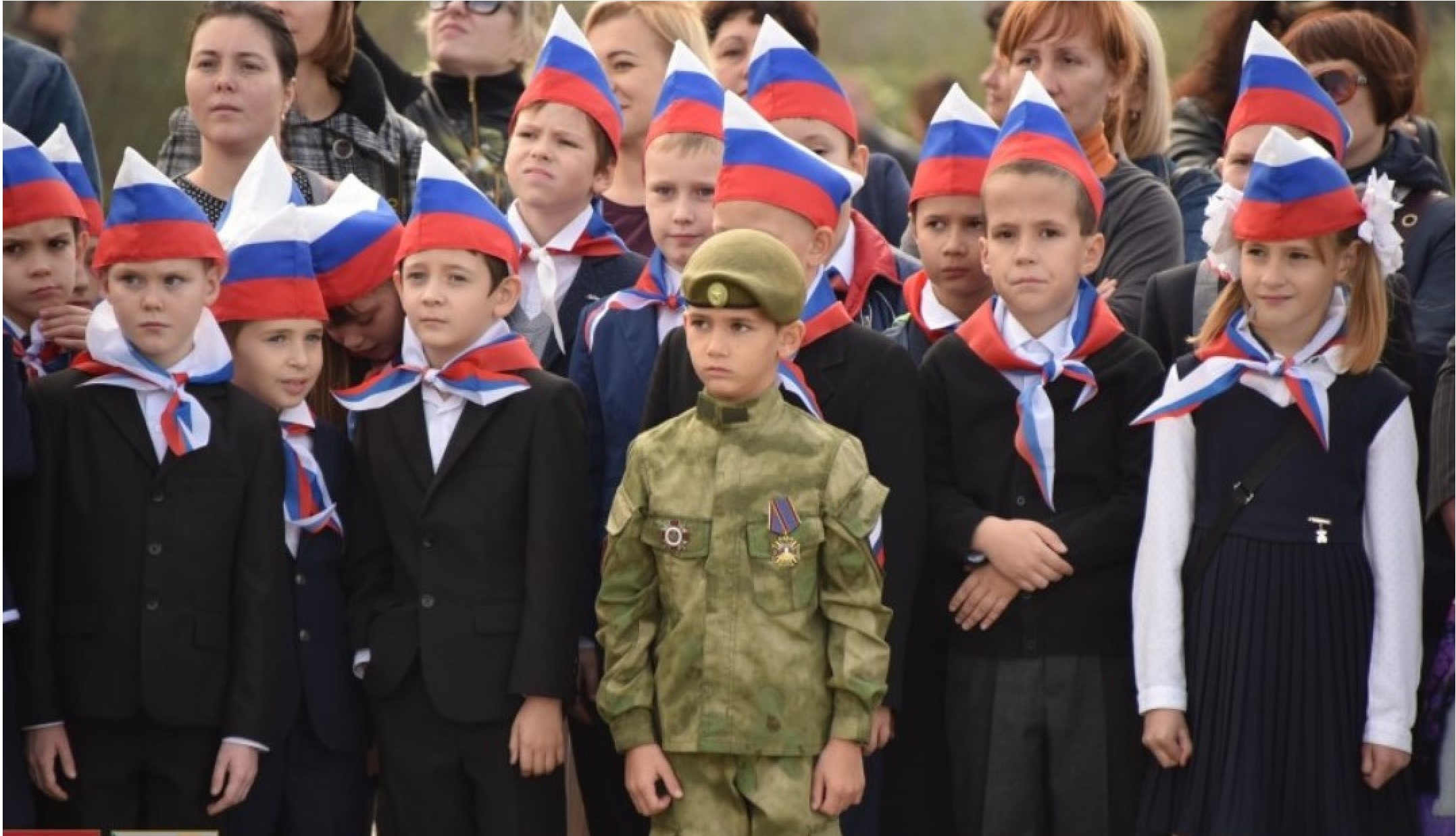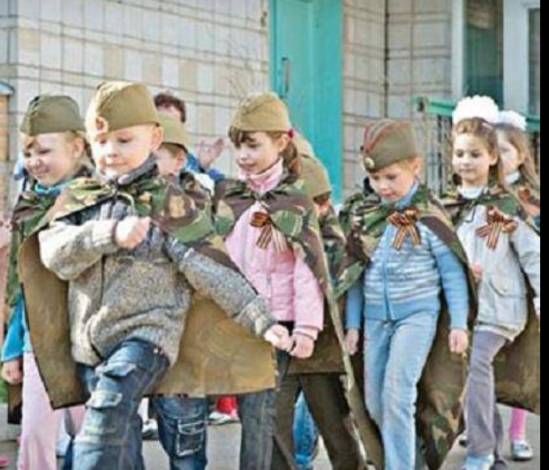
There has been an almost fourfold increase in expenditure on so-called ‘patriotic education’ since Russia began its full-scale invasion of Ukraine, with the military propaganda and indoctrination partly aimed at justifying an unprovoked war of aggression to its own population and glorifying military service among the young. Major efforts are also, however, underway to try to convince Ukrainians on temporarily occupied territory that the invaders are ‘liberators’ and that they have now also become ‘Russians’.
Verstka Media have examined official documents regarding the Russian state budget and report that a massive 43.8 billion roubles (almost 411 million euros) have been allocated for ‘patriotic education’ in the coming year. This is more than ten times higher than in the final year before the full-scale invasion (when it stood at 3.5 billion roubles). The figure is also almost four times the amount allocated for 2022. Verstka notes that the budget would have been passed before Russia’s full-scale invasion. Since that was, doubtless, the case, it is interesting that the figure for 2022, at 11.6 billion roubles was still almost triple that for the previous year. At present, the budget envisages the same amount of over 40 billion per year for the period from 2024-2026. It is not clear whether this spending is part of the shocking 40% of Russia’s federal budget that is, reportedly, earmarked for the war in 2024.
On 16 July 2023, Russian president Vladimir Putin issued a list of instructions, with these including measures to intensify military propaganda in all educational institutions and those aimed at ‘integrating’ youth from areas of Ukraine presently under Russian occupation. Various ministries were ordered, by 1 October 2023, to organize measures described as being “on the harmonization of interethnic relations and consolidation of all-Russian civic identity, as well as on carrying out information work among school and university milieux to explain the reasons and tasks of the special military operation”
It was clear by early on in 2022 that Putin’s initially claimed objectives (the ‘denazification’ and ‘demilitarization’ of Ukraine) were not understood. By late in 2023, it is equally evident that even some of the most hardened ‘Russian world’ apologists for the war are finding it difficult to explain what exactly Ukrainians on occupied territory are supposed to have been ‘liberated from’.
All of these terms have, nonetheless, remained part of Moscow’s official narrative and are being foisted on young people through aggressive propaganda methods. These include the so-called ‘conversations about important issues’ introduced from 1 September 2022 and ‘textbooks’ The activities that Russia is so lavishly funding include ‘patriotic camps’, to which children from newly occupied parts of Ukraine are being illegally sent, and the so-called Youth Army or Yunarmia. By February 2022, Russia was boasting of having ‘recruited’ 29 thousand Crimean children into this militaristic organization, with that number unfortunately likely to be much higher now. Ukrainian children learn how to use Kalashnikov rifles, etc. and are encouraged to see Ukraine as ‘the enemy’ and to want to ‘defend Russia’.
which force students to learn and be examined on a litany of lies about Russia’s aggression against Ukraine since 2014. Schools have ‘veterans’ of this war, including Wagner unit mercenaries, giving talks to classes, and lessons in which they treat war criminals or convicted killers, pardoned after being released from prison to fight in Ukraine, as ‘war heroes’.
Russia has been actively indoctrinating children in occupied Crimea since 2014, and it is clearly hoping to impose the same measures in other areas of Donetsk, Luhansk, Kherson and Zaporizhzhia oblasts now under their occupation.
One of the most dangerous aspects of this is the mounting militarization and glorification of war. The objective is not merely to convince children that those fighting Russia’s war against Ukraine are doing something ‘heroic’ and ‘patriotic’, but to encourage them to believe that they too should fight.
See also
Ukraine ‘began the war against Russia’ in Moscow’s official school history textbook



